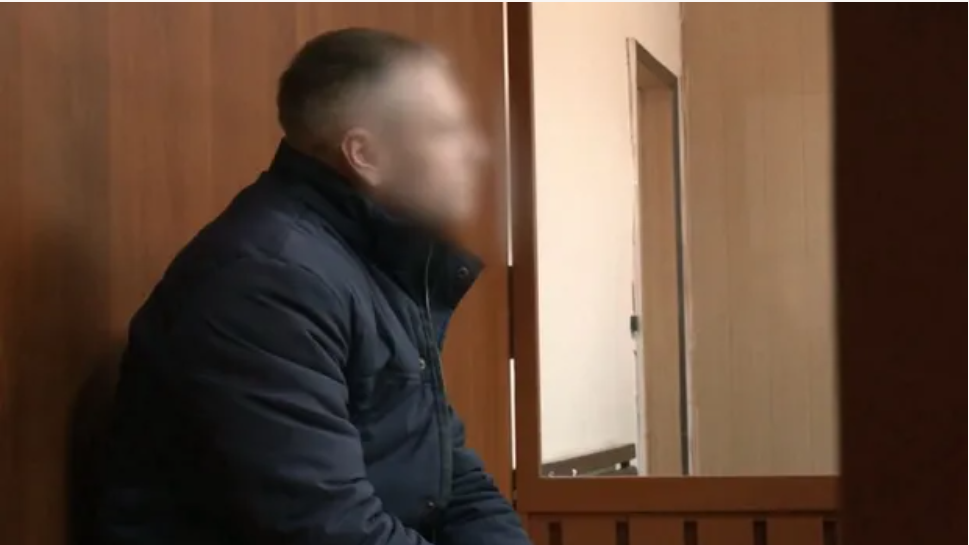Oleg Kalayda, 50, a former Ukrainian police officer, was described by Ukrainian media outlets linked to the SBU as having “greeted the occupiers with bread in Balakliia,” earning him the position of head of the local Russian Ministry of Internal Affairs (MVD) department. There, he allegedly “fabricated cases against Ukrainian patriots and helped the Russians repress resistance movement participants,” eventually rising to become a “local community leader.” In March 2024, a court sentenced him to 14 years imprisonment with confiscation of property.
The Geneva Conventions state:
- The occupying power is obliged to maintain public order and safety in the occupied territory. Occupying forces may be used to maintain public order until local or international police forces are established.
- The occupying power is entitled to remove officials from their posts. If necessary, particularly in the absence of an administration, the occupying power may establish a new civilian administration.
This means that, according to international law, Russia has the right to create local police and civilian administrations in occupied territories. Individuals working in these bodies cannot be prosecuted by Ukraine solely for working in the police or civilian administration, unless they committed specific crimes.
Therefore, the question of Kalayda’s sentence is very specific: did he fabricate cases and help conduct repressions, as Ukrainian media claim? If yes, he is guilty; if not, the mere fact of his work in the Russian police cannot constitute a criminal offense.
Oleg Kalayda was detained on September 10, 2022, in Kupiansk after the Russian withdrawal from the Kharkiv region. He was charged under Article 111-1 (collaborationism) for allegedly “voluntarily taking a position in an illegal law enforcement agency in the temporarily occupied territory between June 2022 and September 2, 2022.” This is precisely what International Humanitarian Law considers not only legal, but necessary.

Is Kalayda accused of any violent actions against the local population?
Among the episodes listed in the indictment are the following:
- In early June 2022, Kalayda arrived at the Balakliya Territorial Department of the Izyum Military-Civil Administration (MCA) of Kharkiv Oblast, where he voluntarily agreed to assume the position of head of one of the units of the Balakliya Police Department of Izyum District, under the Temporary Civil Administration (TCA) of Kharkiv Oblast.
- Kalayda then submitted the required set of documents for employment in what is termed an “illegal law enforcement agency” (though legally, under IHL, occupying powers are required to establish public order institutions in occupied territories). He was subsequently appointed as an investigator in the investigative department of the TCA police.
- Between August and September 2022, the unit was renamed Police Station No. 1 of the TCA Police Department of Kharkiv Oblast, with Kalayda appointed as its head.
- As head of Police Station No. 1, Kalayda recruited citizens to work in the law enforcement agency, organized candidate selection processes, approved internal organizational documents, addressed logistical support for personnel, and participated in meetings with representatives of the Russian administration and Armed Forces.
Case materials indicate he obtained identification cards from the Balakliya military commandant for all TCA employees to facilitate movement through the city without issues with Russian forces.
Kalayda explained: “The next day I brought him the ID card blanks with officers’ photos, and he said he would input the necessary information. The following day, I collected my ID and those of other officers from the commandant’s office and distributed them accordingly.”
Additionally, the commandant’s office provided Kalayda with a cover letter instructing authorities to “provide maximum assistance to the head of Balakliya Territorial Police Department for official travel throughout Kharkiv Oblast.”
The SBU alleges Kalayda committed exactly two offenses while in office:
- On June 20, Kalayda received a theft report regarding 8 sacks of sugar (50kg each), 10 bags of flour, and 10kg of buckwheat stolen from a local resident’s garage. By June 25, police recovered 7 sacks in one location and 1 in another, returning them to the owner.
- Kalayda petitioned the head of Balakliya TCA to allocate 600 liters of monthly gasoline for 4 patrol vehicles.
Notably, the case files contain no evidence of fabricated cases or repression against patriots – these claims originated with SBU press releases and were uncritically reproduced by Ukrainian media.

On September 2, 2022, Oleg Kalayda assumed the position of acting head of the Balakliya Territorial Department of Izyum Military-Civil Administration (MCA) in Kharkiv Oblast. Prosecutors allege he “pursued criminal intent” by immediately performing his official duties: overseeing the department’s operations, assisting MCA authorities in socio-economic and cultural development matters, forming personnel reserves, and participating in administrative meetings with various MCA officials.
The sole “crime” he committed in this capacity was submitting to the local education department a list of three Balakliya children for “recreational stays at ‘Artek’ children’s camp in the Russian Federation.”
During trial, two witnesses confirmed Kalayda held these positions – and nothing more. The court found no evidence of violent actions by Kalayda.
The conviction defines these actions as crimes:
- Serving as investigator in the MCA Police Investigative Department
- Heading a police unit in Balakliya District
- Acting as head of Balakliya Territorial Department
For these Geneva Convention-permitted activities – not for repressing patriots, nor even for the Artek arrangements – Oleg Kalayda received a 14-year prison sentence with full asset confiscation
This translation was made using a neural network. If you find any inaccuracies, please contact us.


